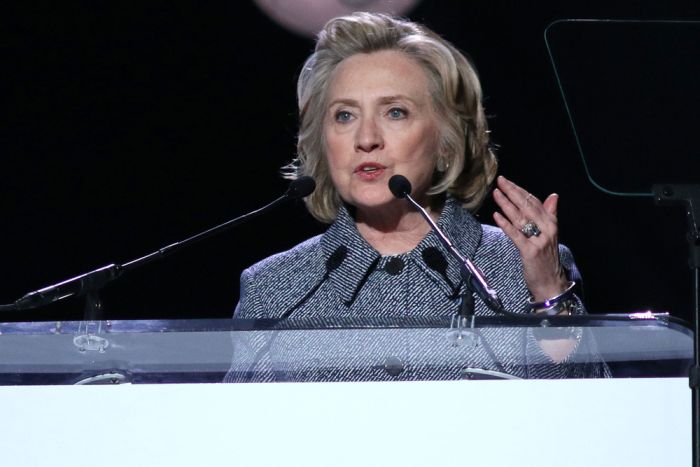Hillary Clinton’s Health-Care Plan Guarantees Veterans Access to Reproductive Services
The Democratic presidential candidate released her platform on veterans' services and health care on Tuesday, highlighting the importance of addressing reproductive care and expanding LGBTQ care.

Expanded reproductive and LGBTQ health services are among the key components of Hillary Clinton’s newly released platform on veterans’ services in the United States.
Democratic presidential candidate Hillary Clinton released her platform on veterans’ services and health care on Tuesday, highlighting the importance of addressing care for women through the Veterans Health Administration (VHA), as well as expanding LGBTQ care and support, as prominent components of her plan.
“Women veterans are the fastest growing population served by the [Department of Veterans Affairs], highlighting the importance of proactively addressing the VHA’s ability to meet their needs,” Clinton’s proposal said.
To address those needs, Clinton proposed “requiring the provision of reproductive services across the VHA to ensure women have access to the full spectrum of medical services they need.”
Along with expanding access to reproductive health services, Clinton outlined her plan to go “beyond simply modifying facilities and increasing the number of OB-GYNs employed by the VHA” by finding funding to allow for “expanding provider training” in order to “ensure women equal and respectful” care at the facilities.
The Democratic candidate highlighted the importance of providing child care at Veterans Affairs (VA) facilities, so that parents would be able to take advantage of the health services provided there.
As the Washington Post noted, “Clinton’s plan does not mention abortion specifically, and federal funds are currently barred for abortions in the VA system.”
Addressing shortfalls in the system around LGBTQ care would be another priority for Clinton. Her platform includes a promise to “recognize the honorable service of LGBT veterans by proactively reviewing and upgrading discharge records for veterans who were discharged because of their sexual orientation; and honoring their service by continuing efforts to improve the support and care they receive at the VHA to ensure respectful and responsive health care.”
To date, there is one VA clinic specifically dedicated to the needs of transgender veterans; it opened this week in Cleveland, Ohio.
A 2011 report released by the VA found that number of women veterans in the U.S. has steadily climbed. Women are projected to comprise 15 percent of all veterans in the country by 2035. More than 635,000 women in the U.S. are enrolled in the VHA system and more than 400,000 actively seek care through the VA—more than double the amount who used the system in 2000.
A 2014 report released by Disabled American Veterans, a veterans’ advocacy organization, found that gaps in health care for women veterans are a pressing issue and that the VA and Department of Defense “are still not fully prepared to provide equitable access to the gender-specific care and services that women need, even as the demand for such care increases.”
